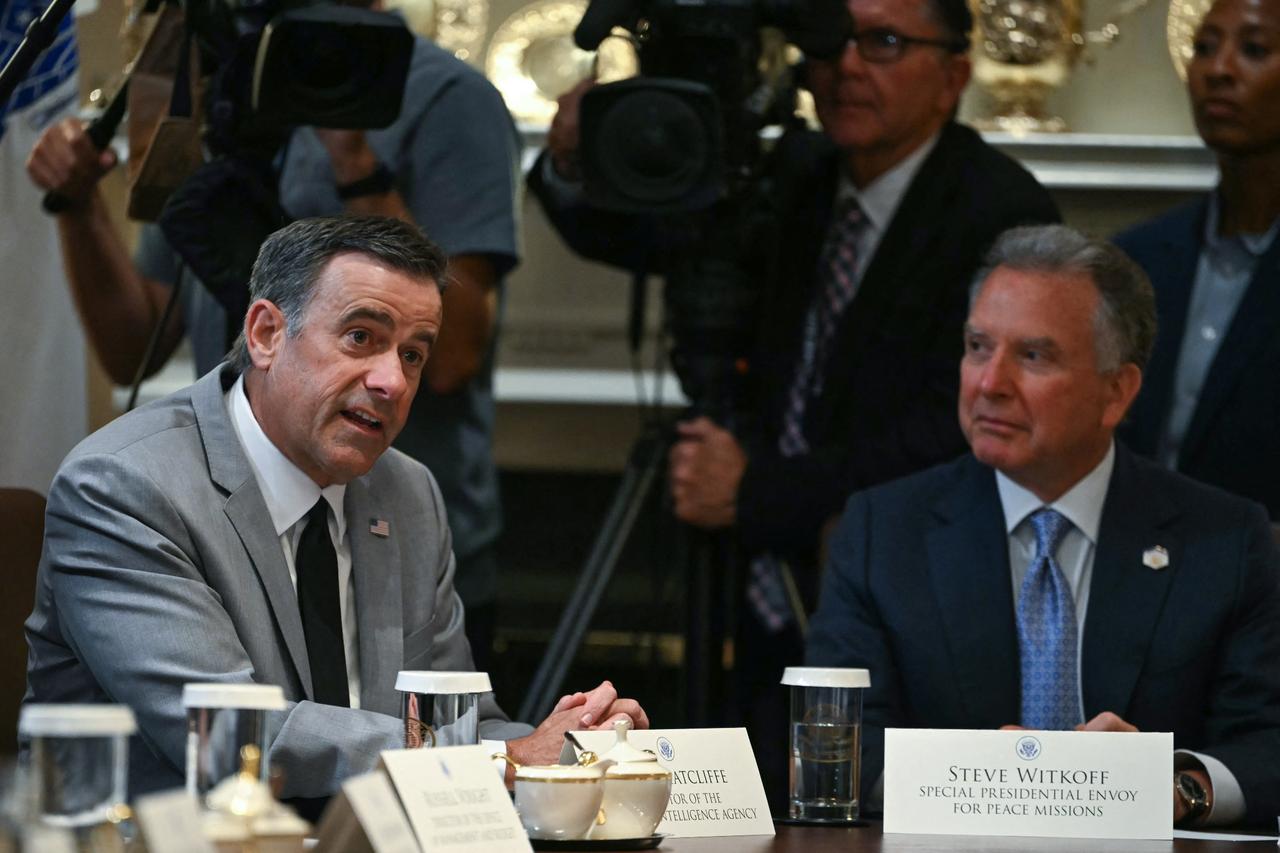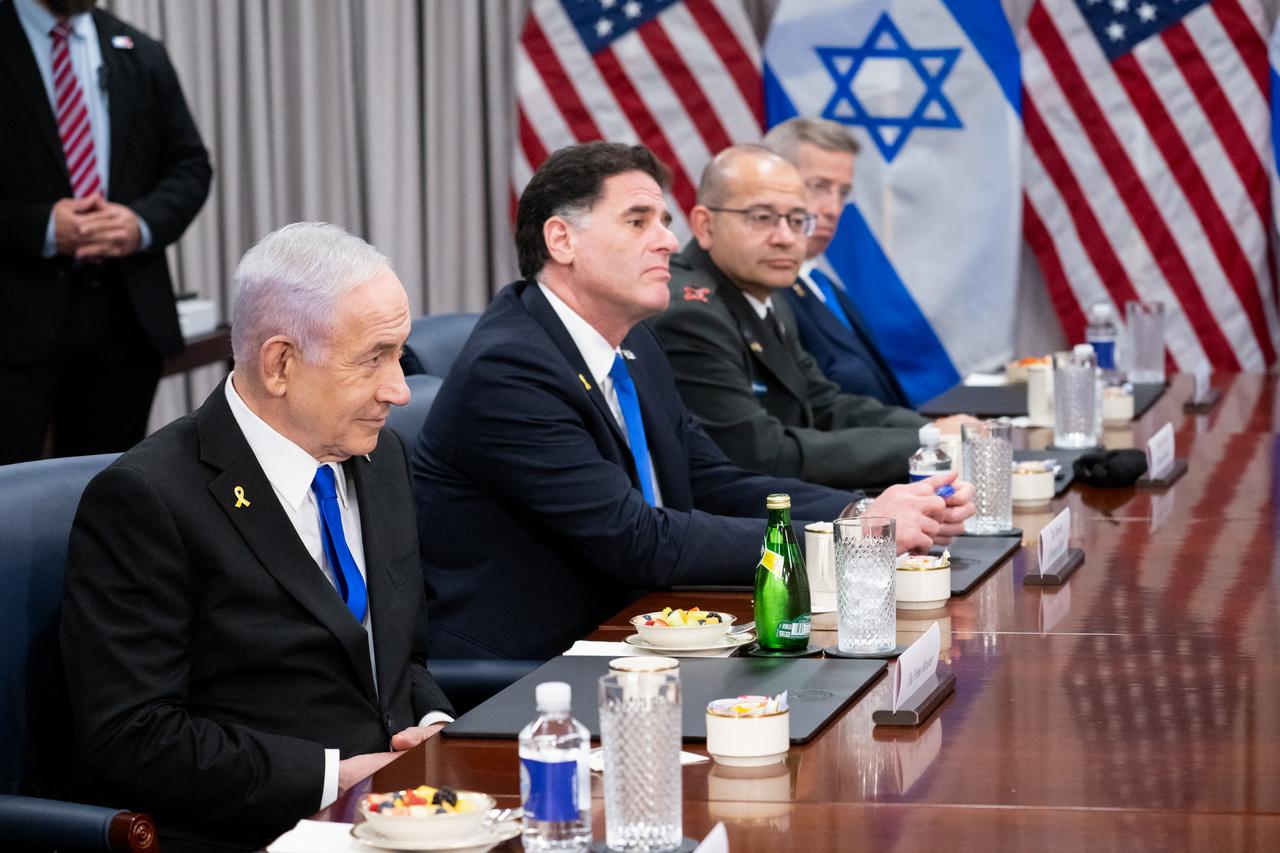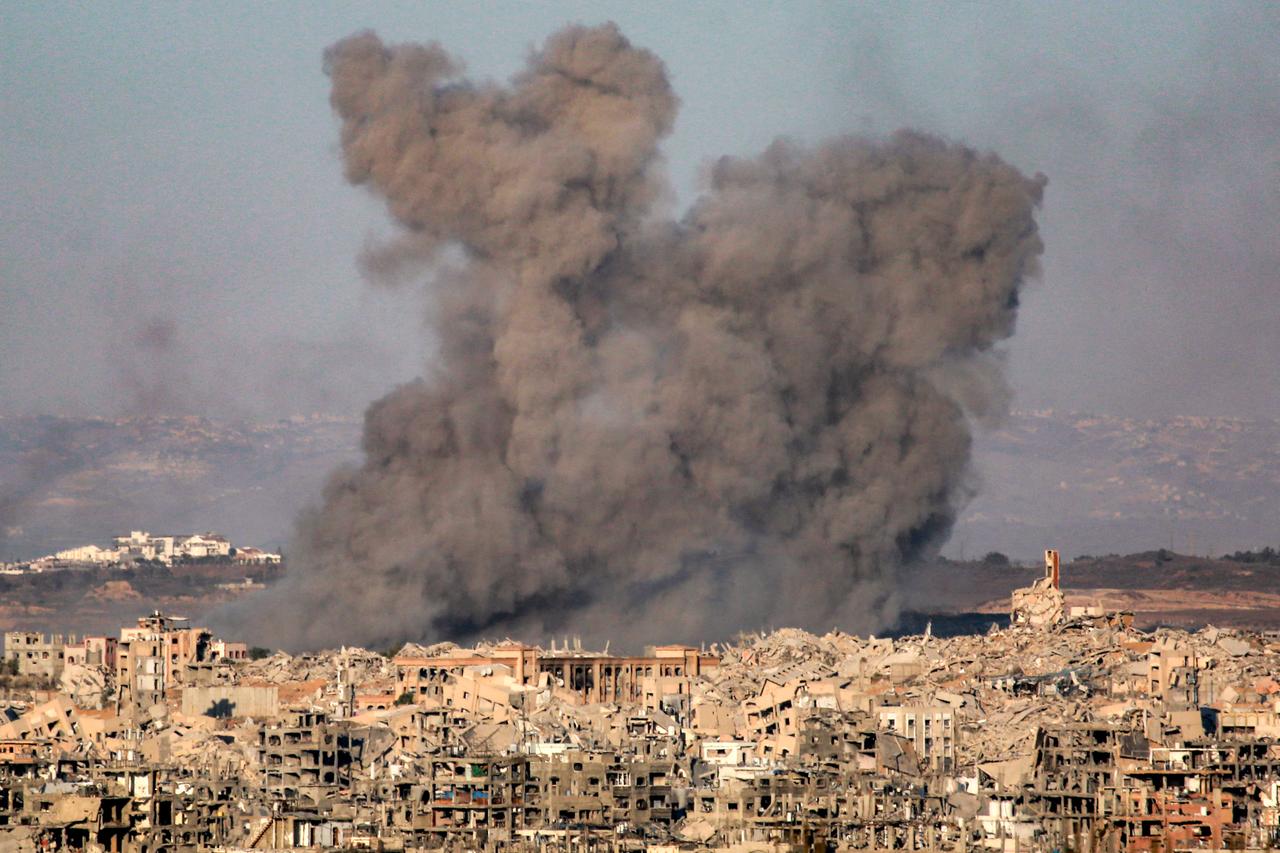
The U.S. administration has opposed Israel's Gaza occupation plan during cease-fire negotiations, according to reports.
U.S. President Donald Trump's Middle East Special Representative Steve Witkoff met with Israeli Strategic Affairs Minister Ron Dermer at the White House regarding cease-fire talks.
According to Axios, citing two sources familiar with the meeting, a Qatari official also participated in the discussions between Witkoff and Dermer. The talks focused on Israeli military withdrawal boundaries during a proposed 60-day cease-fire period in Gaza.

Sources familiar with the meeting told Axios that Dermer presented a map indicating Israel would withdraw from a smaller area than in previous truces. Witkoff and the Qatari official both rejected the proposal, calling the map "unacceptable."
Witkoff reportedly said the plan resembled the "Smotrich Plan," which envisions sustained Israeli occupation across large sections of Gaza—a proposal not supported by the Trump administration.
Dermer countered that Israeli Prime Minister Benjamin Netanyahu was under pressure from far-right coalition members not to make "major concessions."

Separately, Israeli media outlet Haaretz reported that Israeli military officials have raised objections to a government plan to establish a so-called "humanitarian city" in Rafah, which critics say resembles a detention or displacement camp.
Also in a recent Haaretz editorial article, it's been said that, "Israel's isn't creating a 'humanitarian city' in Gaza. It's creating transfer camps," adding, "Prime Minister Benjamin Netanyahu and Defense Minister Israel Katz are openly going ahead with plans to place Gazans in camps in preparation to transfer them out of the enclave."
Defense Minister Israel Katz had directed the military to create a facility for 600,000 displaced Palestinians as the first stage in a broader plan to relocate all Gazans under the label of "voluntary migration."
However, Israeli military sources expressed concerns about operational feasibility, particularly if Israel is expected to withdraw from areas like the Morag Corridor during the cease-fire.

Israeli officials previously indicated that Trump's suggestion to resettle Gazans in other countries had sparked discussions with regional partners. However, Axios reported that opposition from countries like Egypt and Jordan led to the shelving of the relocation plan.
Still, Netanyahu reiterated Thursday that Gazans "should be free to leave" and stated, "We are not forcing anyone out. This is not about forced displacement."
Speaking to reporters in Washington, Netanyahu said the idea was to "give them a choice." He added: "People in Gaza should have the right to leave if they want and not be trapped by Hamas' weapons."
Turkish Foreign Minister Hakan Fidan also stated that Türkiye rejects any plans aimed at forcing Palestinians to leave their homeland and called on Israel to declare an immediate ceasefire.
"We reject all plans aimed at forcing Palestinians to abandon their homeland," he said, while voicing support for the Arab League's Gaza reconstruction initiative. "We back the establishment of an independent and sovereign Palestinian state, with East Jerusalem as its capital, based on the 1967 borders."
According to Palestinian authorities, over 57,575 people have been killed and 136,879 injured in Gaza since Israel's military operations began on Oct. 7, 2023.
Israeli attacks resumed on March 18. Since then, 7,013 more people have been killed and 24,838 injured, according to reports.
The Gaza Humanitarian Relief Foundation (GHF), a U.S.-Israel initiative, has faced criticism for its role in recent aid distribution sites, where 766 people were reportedly killed and 5,044 wounded in attacks since May 27.
Israel has announced its intention to expand and solidify its occupation of Gaza, with Netanyahu vowing to "completely take over" the territory.